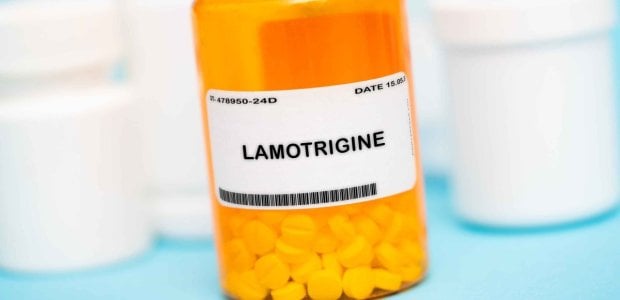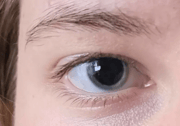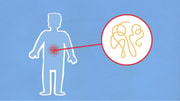Life-altering reaction: Young woman faces harrowing battle with rare medication side effect
- Replies 0
Disclaimer: This article delves into an incident involving medical complications, hospitalisation, and severe health consequences. Reader discretion is advised.
When a routine medical treatment unexpectedly triggers a rare and alarming reaction, it can turn a person's life upside down in an instant.
In a harrowing account that served as a stark reminder of the potential dangers of medication, a young woman's life was nearly claimed by a severe reaction to a common drug.
The experience, described as frightening and bewildering, highlights the complex and often unpredictable nature of human health and the profound impact that rare medical reactions can have on an individual's well-being.
Charlotte Gilmour, a 23-year-old woman from Palmerston North, New Zealand, experienced a nightmare scenario when she developed Stevens-Johnson Syndrome (SJS), a rare and serious disorder that caused blistering of her skin, mouth, and oesophagus.
This condition, which affects fewer than one in a million people globally, is a stark warning to all of us about the unpredictable nature of drug reactions.

Charlotte's ordeal began with a persistent chest infection, but it was the rash that appeared on her body that signalled a dire emergency.
‘I looked in the mirror and I just burst into tears. I think I subconsciously knew it was something quite serious,’ she recounted.
The rash was the first sign of SJS, a condition believed to have been triggered by lamotrigine, a medication she was taking for depression.
The connection between her chest infection and the onset of SJS remains unclear, but the timing was undoubtedly unfortunate.
Gilmour was hospitalised, and some Filipino nurses recognised the symptoms from cases in their home country; however, there was limited information available to medical staff to assist her.
‘It was scary, I guess, hearing…“OK, no one really knows a lot about this,”’ she shared, reflecting on the uncertainty and fear that comes with facing a little-understood medical condition.
The severity of her symptoms was life-altering. Blistering extended from her digestive tract to her face, shoulders, and back, necessitating the use of a feeding tube.
Initial treatments, including steroids, seemed futile, with medical staff expressing doubt about their efficacy.
However, Charlotte's condition became even more dire when she began to lose her vision, prompting her to plead for the continuation of the steroid treatment.
Miraculously, the medication that once seemed ineffective started to turn the tide in her favour.
After an agonising 30 days in the hospital, Charlotte's resilience and the medical team's efforts paid off, and she was able to recover and leave the hospital.
This incident shed light on the importance of vigilance when it comes to medication.
Lamotrigine, the drug implicated in Charlotte's reaction, is commonly prescribed in Australia for depression and epilepsy.
While rashes and skin irritations are known side effects, they typically subside; however, Charlotte's case underscored the critical need for patients to immediately cease medication and seek medical advice if such symptoms occur.
Charlotte Gilmour's harrowing experience with a rare medication reaction shed light on the potential dangers of pharmaceutical errors.
While her case highlighted the importance of medication safety, it also underscores the risks faced by patients when errors occur in the healthcare system.
This is exemplified in another incident involving an elderly woman whose life was endangered due to a pharmacy error, showcasing the critical need for vigilance and caution in medical treatment.
 Do you have any insights or experiences with medication reactions? Join the conversation below and let us know how you navigated these challenges.
Do you have any insights or experiences with medication reactions? Join the conversation below and let us know how you navigated these challenges.
When a routine medical treatment unexpectedly triggers a rare and alarming reaction, it can turn a person's life upside down in an instant.
In a harrowing account that served as a stark reminder of the potential dangers of medication, a young woman's life was nearly claimed by a severe reaction to a common drug.
The experience, described as frightening and bewildering, highlights the complex and often unpredictable nature of human health and the profound impact that rare medical reactions can have on an individual's well-being.
Charlotte Gilmour, a 23-year-old woman from Palmerston North, New Zealand, experienced a nightmare scenario when she developed Stevens-Johnson Syndrome (SJS), a rare and serious disorder that caused blistering of her skin, mouth, and oesophagus.
This condition, which affects fewer than one in a million people globally, is a stark warning to all of us about the unpredictable nature of drug reactions.

Charlotte Gilmour experienced a severe reaction to her medication, developing Stevens-Johnson Syndrome. Credits: Shutterstock
Charlotte's ordeal began with a persistent chest infection, but it was the rash that appeared on her body that signalled a dire emergency.
‘I looked in the mirror and I just burst into tears. I think I subconsciously knew it was something quite serious,’ she recounted.
The rash was the first sign of SJS, a condition believed to have been triggered by lamotrigine, a medication she was taking for depression.
The connection between her chest infection and the onset of SJS remains unclear, but the timing was undoubtedly unfortunate.
Gilmour was hospitalised, and some Filipino nurses recognised the symptoms from cases in their home country; however, there was limited information available to medical staff to assist her.
‘It was scary, I guess, hearing…“OK, no one really knows a lot about this,”’ she shared, reflecting on the uncertainty and fear that comes with facing a little-understood medical condition.
The severity of her symptoms was life-altering. Blistering extended from her digestive tract to her face, shoulders, and back, necessitating the use of a feeding tube.
Initial treatments, including steroids, seemed futile, with medical staff expressing doubt about their efficacy.
However, Charlotte's condition became even more dire when she began to lose her vision, prompting her to plead for the continuation of the steroid treatment.
Miraculously, the medication that once seemed ineffective started to turn the tide in her favour.
After an agonising 30 days in the hospital, Charlotte's resilience and the medical team's efforts paid off, and she was able to recover and leave the hospital.
This incident shed light on the importance of vigilance when it comes to medication.
Lamotrigine, the drug implicated in Charlotte's reaction, is commonly prescribed in Australia for depression and epilepsy.
While rashes and skin irritations are known side effects, they typically subside; however, Charlotte's case underscored the critical need for patients to immediately cease medication and seek medical advice if such symptoms occur.
Charlotte Gilmour's harrowing experience with a rare medication reaction shed light on the potential dangers of pharmaceutical errors.
While her case highlighted the importance of medication safety, it also underscores the risks faced by patients when errors occur in the healthcare system.
This is exemplified in another incident involving an elderly woman whose life was endangered due to a pharmacy error, showcasing the critical need for vigilance and caution in medical treatment.
Key Takeaways
- Charlotte Gilmour, a 23-year-old woman from Palmerston North, New Zealand, suffered a rare and severe reaction to her medication, developing Stevens-Johnson Syndrome.
- The syndrome is extremely rare, affecting fewer than one in a million people, and was possibly triggered by lamotrigine, a drug used to treat depression.
- Gilmour faced a serious threat to her health, including severe blistering of the skin, mouth, and oesophagus, which required her to use a feeding tube and nearly caused her to lose her vision.
- Despite initial ineffective treatments, the continuation of a steroid regimen ultimately aided in her recovery after a 30-day hospital stay. Patients experiencing similar side effects are urged to stop the medication and seek immediate medical advice.







